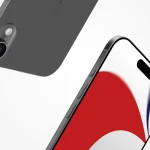
SPEAKERS: JOHN SCULLY, FORMER CEO, APPLE; TOM KEENE, BLOOMBERG NEWS; SARA EISEN, BLOOMBERG NEWS; SCARLET FU, BLOOMBERG NEWS
(This is not a legal transcript. Bloomberg LP cannot guarantee its accuracy)
SARA EISEN, HOST, BLOOMBERG NEWS: The big story of the day here in the US, Scarlet, has to be Apple. Investors expecting to see the company’s first earnings decline in a decade when it reports later today. Some analysts are saying that.
Joining us for the hour, special guest host John Scully. He was the company’s CEO. He was at Pepsi before that. He was famously brought in by Steve Jobs, and then famously dismissed Steve Jobs. What’s going on with Apple now? Do you share some of the concerns with these investors?
JOHN SCULLY, FORMER CHIEF EXECUTIVE OFFICER, APPLE: Well, I think sometimes if you have a different point of view, you can see things clear. I think you’ve got to first look at the fact that the US market is really developed in smartphones. Apple still the leader with Samsung close behind it, but the real story in the future is going to be the emerging markets. And the global 2.0 is not about exports. It’s about developing home markets.
EISEN: And Apple’s going to need cheaper phones to compete there?
SCULLY: Well, it’s going to have to recognize that the income is much lower for this emerging middle class. Maybe a billion people in the emerging markets. And if you take India, I was just there last week, and the iPhone sells for $800. The average Indian worker makes $1,200 a month. So I think price is going to be an issue, particularly since Samsung has become very aggressive in more models at lower price points.
EISEN: Well, we’re going to talk a lot more with you about Apple during the hour. Of course, new leadership under Tim Cook, whether he’s managed to step out of Steve Jobs’ shadow. But the other story to get to here in the front page is the UK, David Cameron promising to let British people vote on whether they want to stay in the European Union. He announced a popular vote by 2017, but the key here is this hinges on his reelection in two years, making it a campaign issue and perhaps a risky strategy. Tom Keene, I know everybody in Davos has to be talking about this.
TOM KEENE, HOST, BLOOMBERG NEWS: Well, they’re talking about it. I think the symbolism of Mr. Cameron giving that speech at our Bloomberg headquarters in London was very important. Think of that. The British prime minister goes to an arguably US institution to give that speech. That’s got to shake up Europe. And the real distinction here is a lot of people in the United Kingdom just viscerally don’t feel a part of the continent. He’s got a lot of domestic politics to get through to get to that referendum in a few years.
EISEN: All right. Tom Keene, thanks for the insight there on the British vote. We’ll get back to you in just a moment. John Scully is here, and former CEO of Apple. As a corporate executive, you look at these big macro overhangs, huge uncertainty. How do you tune out that noise and focus on just growing your business?
SCULLY: Well, I think you have to look at where the growth in the economy is. Seventy-five percent of the world’s growth is occurring in the emerging markets. It’s not happening in the EU.
EISEN: Yeah. So don’t worry about it.
SCULLY: Well, it’s not that you don’t worry about it, but it’s – it can’t be where you’re going to get your growth. And it’s probably going to be that way for several more years.
SCARLET FU, HOST, BLOOMBERG NEWS: It’s all about growth. And when we look at what’s going on with Microsoft and Dell, it’s very telling, right? Because Microsoft is now getting involved in this Dell takeout. Dell of course close to clinching a deal, a leveraged buyout by Silverlake Management. But we’ve learned now that Microsoft could contribute about $2 billion to this. Is this a good idea, John Scully, for Microsoft to get involved?
SCULLY: Well, I was very surprised about that, that Microsoft might put in between a billion and $3 billion of debt financing. But when you think about it, the future, even the present, is about multiple screens. So Apple has three screens, has the iPhone, it’s got the iPad, and it’s got the Mac. Samsung’s got two screens. TV and the Android iPhone. Microsoft only has one screen, and that’s the PC, and it’s going down.
FU: It has the tablet – the Surface tablet, but that hasn’t really –
SCULLY: Well, there’s not much of a story yet with that. So I think Microsoft has got to make sure that its ecosystem is strong. I think it’s a very smart move by Michael Dell to take the company private. You can do a lot of things as a private company you can’t do as a public company. So it may be in Microsoft’s interest to see a stronger Dell. Dell’s been struggling to deal with how does it turn from a PC company into an enterprise solutions company. This is a way to do it. It’s not an option which HP has. It’s one which Dell is in a unique position to (inaudible).
EISEN: We’re going to hear a lot more about Dell. I know they’re talking about it in Davos. Also, Bloomberg News has learned that Evercore Partners is advising Dell, and Tom will have a conversation coming up with the head of Evercore Partners, Roger Altman.
Another top story here. New Bloomberg poll results from investors around the world. They say that the US government finances, the state of our fiscal problems, is the number-one risk to the global economy. Thirty-six percent of those surveyed cite this nation’s fiscal woes. They say European debt crisis comes in second with 29 percent, and then the slowing Chinese economy.
John Scully, I know you’re very focused on the emerging markets. When we think emerging markets, we think China, and especially with the growth potential there for Apple.
SCULLY: Well I was in China and India and Singapore last week. China is a key market, according to Tim Cook, for Apple. It’s, he says, some day going to be bigger than the US. In October, they reported that China was something like $5.7 billion of sales versus $14 billion in the US. So China’s a very, very high priority.
EISEN: It’s critical for them to get this partnership with China Mobile, a deal with the largest wireless carrier there in China.
SCULLY: I don’t know the details of that relationship, but obviously China Mobile is the largest mobile carrier in the world. So that would be a key relationship.
EISEN: All right. Much more with you, John Scully, on Apple and other technology earnings.
07:08
(BREAK)

07:20
FU: The other headline that we’re watching, Sara, of course is Apple. It reports earnings after the bell today. And the question here for investors, are the company’s best days behind it? It’s a time of transition because Apple may face its first profit drop in a decade because of a slowdown in demand for iPhones. John Scully, the former Apple CEO, is back with us. He is our guest host for the hour to talk about the profit challenges of the next big thing.
And for Apple and every phone maker out there, China is the next big thing. China is the world’s biggest cell phone market, but when you look at the penetration of smartphone makers in that country, it’s pretty fragmented. Apple does not have a commanding lead here. It only has an 8 percent marketshare. How does Apple go about really making a difference, making impact in China?
SCULLY: Well, I think Apple is still the world’s greatest innovator. And I believe that the challenges it has in China is that you don’t get the subsidies from the carriers that you get in North America. Apple actually gets the highest subsidies because it would go out, it would pick say AT&T as an exclusive. In China, it doesn’t have that advantage, though it is high priced. What it’s been doing in emerging markets is selling its older models at lower price points. So the iPhone 4 and 4S are sold at more competitive prices. So we’ll just have to see.
FU: And Samsung is eating its lunch with a 14 percent marketshare, double – almost double what Apple has.
SCULLY: Well, Samsung has products at price points Apple doesn’t have. The Samsung Galaxy S3 is about $450. Apple doesn’t have a new product at that price point. It’s up more like $800.
EISEN: Well when you look at some of the concerns out there, one of the – besides the numbers, there’s also this sort of embedded concern from investors and from the world about whether Apple still has its magic with Steve Jobs no longer there. I know you’ve come out in support of Tim Cook, and you were telling us – you were sharing some of your story of working with Steve Jobs.
SCULLY: Yeah. Well, I think first of all I remember when we were getting ready to build the first commercial for launching the Mac, and Steve said create something that will stop the world. And that’s how Steve thought. It was about absolutely going for the completely disruptive, unexpected. That’s hard to do right now because the smartphone is a well-developed market. We don’t know whether TV can be that big yet. So whether there’ll be another blockbuster, it’s not clear. It’s really about running the business that they have today smarter and smarter. Tim Cook’s doing a terrific job I think. FU: And when you compare Apple with, for instance, Samsung, we keep coming back to it because it’s the biggest rival. Samsung has outsold Apple in terms of number of units of smartphones. I wonder how distracting the patent wars, the back and forth lawsuits, have really been for a company like Apple.
SCULLY: I don’t – I think that’s noise. I think the – the real story is Samsung is turning out great hardware products at – at a variety of different price points. Apple rebuilt their whole supply chain last year to get a refresh of several new products twice a year. They did that quite successfully. That’s very complex on the scale that Apple is doing. And it’s a two-horse race. There is no number three, and that’s really key. If there were a strong number three, that would be something that would be a problem for Apple, but I don’t see a number three emerging at this point.
EISEN: And we were talking to Tom Keene earlier, who’s in Davos, and he said what he’s curious about is how Apple’s going to deploy all of this cash.
SCULLY: Well, I think it’s already starting to show that it’s vertically integrated. Samsung is vertically integrated. Apple is moving more and more towards buying more and more of the technology that it uses. And I would expect it would continue to do that. The other thing is building its cloud data centers. Apple is much stronger in hardware and software than it is in cloud. Cloud is key. Samsung doesn’t have cloud yet. Samsung doesn’t even own its own software yet. So Apple’s place to invest I think is in cloud and in software.
FU: It feels like Apple has declared war on Google, but what can Apple learn from Google?
SCULLY: Well, the two most used applications on the iPhone come from Google. That’s Google Maps and YouTube.
FU: Right.
SCULLY: Yeah. So I think Apple has got some catching up to do in terms of its cloud software. Google is clearly ahead on that. And I think that Apple understands that. It’s clearly capable of doing it. It has great people. So I suspect breakthroughs in cloud is what I would be looking for from Apple.
EISEN: All right. John Scully, stay with us for the hour, the former CEO of Apple on this earnings day.
07:24
(BREAK)
07:56
EISEN: Here in New York, we are talking about the behemoth of all earnings reports, Apple today. And we’ve got the perfect person to do it. John Scully with us for the hour, the former CEO of Apple. And you listen to Roger Altman’s enthusiasm there, especially toward the US consumer and how Apple is really poised in this domestic recovery. You talk a lot about emerging markets, but the US is outperforming right now.
SCULLY: Yeah. I think Roger Altman as spot-on. The US economy is getting better. There’s a lot of confidence around the world that this is one of the best places to invest. And I think Apple will continue to do very, very well in the United States.
FU: Does that mean the era of outsourcing is over and everything’s going to come back home, or a lot of it is?
SCULLY: Well, I think that global 1.0 was all about exports, and particularly for the emerging markets. And global 2.0 is about developing their home markets because the export opportunities aren’t as good anymore. You see that the Indian BPO companies, business process outsourcers, are investing here in the United States. You see manufacturing returning to the United States, not with jobs but with automation.
EISEN: And we know that Apple’s adding jobs in the United States. Does it have a responsibility to do that? Quickly.
SCULLY: I think – yes. I think – for instance, Wal-Mart’s hiring 100,000 veterans. That’s a great move for America.
EISEN: All right. We’ve got to leave it there. John Scully, thank you so much for joining us on Bloomberg Surveillance.
07:57
2013 Roll Call, Inc./Analyst Wire(c) 2013 Analyst Wire. Provided by ProQuest LLC. All rights Reserved.













